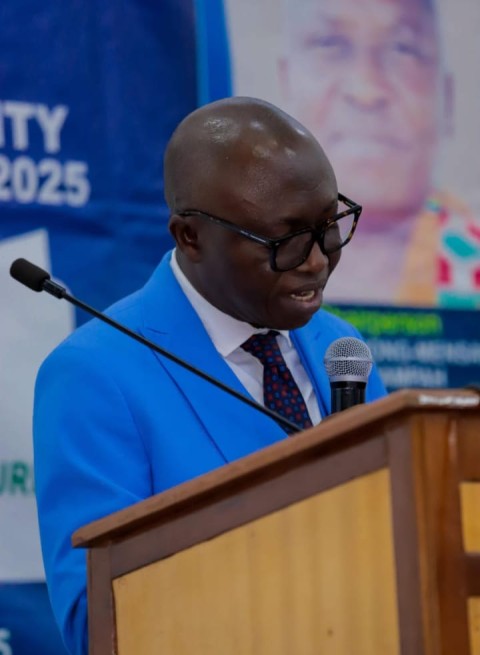Story by Christopher Tetteh
Planner Gifty Nyarko, African Ambassador for Inclusive Urban Governance and Climate-Resilient Development, has emphasized the critical need to embed ocean stewardship into planning and governance systems across Africa. She underscored the ocean’s vital role in sustaining life, driving economic growth, and stabilizing the climate, particularly in the face of rapid urbanization and fragile coastal ecosystems.
In a statement marking the 2025 World Maritime Day, themed “Our Ocean, Our Obligation, Our Opportunity,” Pln. Nyarko called on local governments and planning institutions to prioritize climate-resilient and marine-sensitive development. “Our ocean is not an afterthought, but the foundation of our sustainable future,” she stated, urging that this perspective be mainstreamed into all levels of urban and land-use planning on the continent.
She stressed the need to integrate ocean and coastal governance into national and local urban development frameworks, especially in vulnerable coastal cities. Key recommendations included:
- Mainstreaming marine and coastal considerations into spatial and land-use planning systems.
- Establishing development buffers to reduce risks from erosion, flooding, and saltwater intrusion.
- Enhancing access to geospatial data, hazard maps, and climate models.
- Adopting green building standards for coastal and port developments.
- Promoting low-carbon shipping in line with IMO guidelines.
Alignment of African urban planning policies
Pln. Nyarko also emphasized alignment of African urban planning policies with global agreements such as the BBNJ Agreement on biodiversity beyond national jurisdiction, the upcoming Global Plastics Treaty, and the outcomes of the 2025 UN Ocean Conference.
She urged African Union institutions and Regional Economic Communities (RECs) to incorporate ocean-climate-urban linkages into Agenda 2063 and national development strategies.
Highlighting inclusive governance, she called for the active involvement of coastal communities, women, youth, children, and indigenous groups in marine policy and adaptation initiatives. This, she said, is essential to protect the livelihoods of small-scale fishers and ensure equitable coastal development.
Pln. Nyarko also called for increased marine and coastal literacy among planners and the wider public, alongside improved access to climate finance, including the Green Climate Fund, to support coastal resilience.
She advocated for stronger collaboration between governments and the private sector to invest in sustainable infrastructure, early warning systems, and blue economy opportunities that enhance resilience and financial empowerment in coastal regions.
“African nations must lead with foresight,” she concluded, “by planning urban spaces that are not only sustainable and inclusive, but resilient to ocean and climate pressures.”





